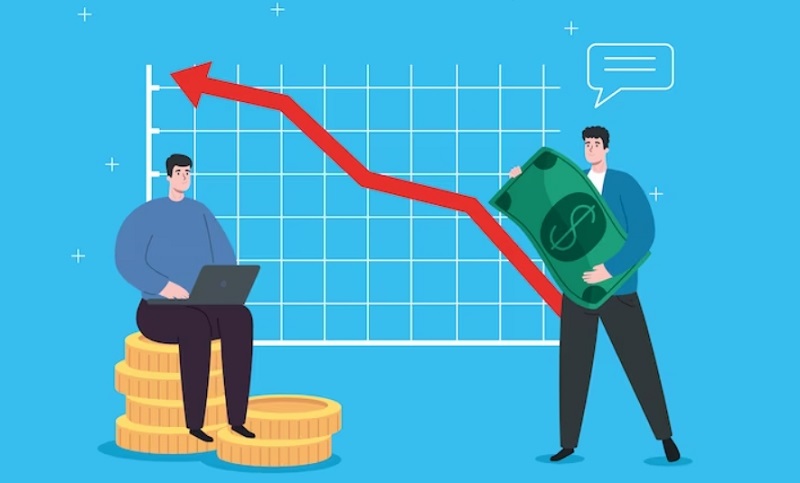In a world that seems to change dramatically each year now, it’s easy to forget to look backward and take a good look at how things used to be. This sober reflection is difficult to do during a busy day. It takes a bit of time out from mobiles, apps, and emails to actually jump back 10 years and immerse yourself in how things were.
I want to spend a moment reflecting on how buying shares and investing in the stock market has changed over the last 10 or 20 years.
These decades have of course seen incredible technological advances, but they’ve also been tough on investors.
First, the dot-com boom, slicing over 60% off the Nasdaq at the turn of the century.
Then who can forget the global financial crisis which followed in 2008 – 2011, which devastated banks, crippled the stock market, and produced corporate losses larger than we’d ever seen written in print before.
The last ten years have been relatively docile in comparison – a steadily rising global market, and confidence beginning to emerge again that the stock market was a sensible place to put your money.
Then of course the events of 2020 so far have thoroughly put that thought back into its box!
Buying Shares – Then Versus Now
Against this wax and waning background, stockbrokers and share dealing services have continued to allow investors to dive in (and out) of the stock market with relative ease. But how do services today compare against similar offerings 10-20 years ago? Let’s focus on some of the differences:
Phone Service
In 2001 it wasn’t unusual to invest in shares over the telephone. Yes, it sounds ironic, considering that the web was seriously taking off and businesses were making their fortunes in the sector.
At the end of the day, even though investors may have been investing in a risky, or modern venture, they were certainly more conservative when it came to their personal trading preferences.
For this reason, share dealing over the phone was commonplace throughout the 2000s.
Thereafter, the price of online trading fell and fell. From £15 a trade in 2004 to as low as £4.95 per trade in 2020. Through automation and scale, online stockbrokers have been able to slice off increasingly thin parts of cost and margin to enable the price of a single trade to continue to fall.

A part of the reason behind this is that stockbrokers are now more likely to charge an overall account fee. This is useful to a broker because it allows them to generate revenue even from investors who aren’t particularly active traders. This also shifts the profit center away from the transactions themselves.
Now, phone trading is so prohibitively expensive compared to online trading that few investors see the benefit. Some share dealing services don’t even offer the option at all.
Data and Charting
In 2000, an investor would make a trade after reading the share price of a company they were following in the financial pages, such as the Financial Times and the Wall Street Journal.
This wasn’t cutting edge, and only gave investors a once-a-day update on pricing.
Of course, Bloomberg terminals and the internet were providing more sophisticated investors with live information at that time, but it wasn’t considered necessary or even essential to know the price of a stock before you made a decision to invest.
In modern times, stockbroker accounts and even free news websites provide near-to-live pricing information about stocks and shares.
In some ways, however, investors are still satisfied with daily pricing. If you place an order for a mutual fund or an index fund (not an ETF), you will usually do so with only the knowledge of yesterday’s closing price. This is because many funds trade only once per day with investors, after calculating their latest NAV (net asset value) at a predefined time of day.
Overall, the introduction of online trading and the provision of speedy live data has given investing the feeling of being instantaneous and much closer to the experience of a wall street trader.
The odd thing is though – that neither of these features will really matter to a long-term investor, who buys shares regularly and holds them for the long term. Despite all the wizardry, the underlying science of running an investment portfolio really hasn’t changed one bit!

